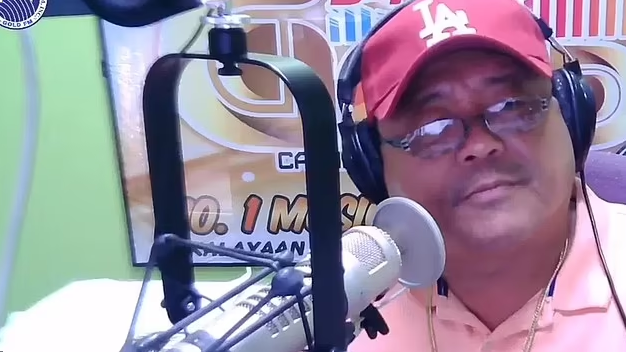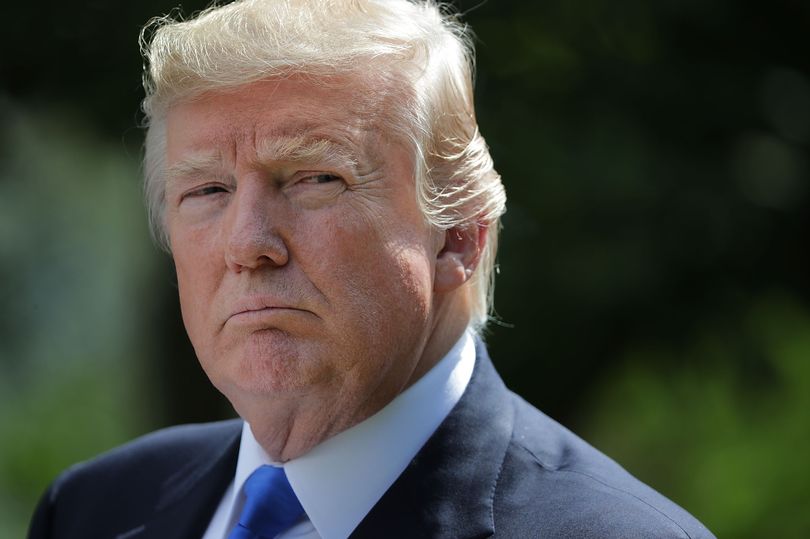
Shocking video footage shows the moment a radio presenter in the Philippines was shot dead during a livestream of his show by a gunman pretending to be a listener.
Juan Jumalon, a 57-year-old news broadcaster, was shot twice during a morning broadcast in Calamba town on Sunday morning, police said.
In livestream footage from Facebook, the journalist was seen looking up towards the door – out of view – as his attacker entered.
Now, new footage shared on X, formerly known as Twitter, shows the moment an unidentified assailant entered the studio and approached Jumalon head-on.
The attacker was seen snatching his victim’s gold necklace before fleeing on a motorbike with a companion who had been waiting outside Jumalon’s home.
Footage appeared to show two men fleeing from a car garage in the house after shooting the reporter.
President Ferdinand Marcos Jr has since ordered a thorough investigation into the incident, the fourth killing of a journalist since he took office in 2022.
Click on the link to watch video
Juan Jumalon, known as DJ Johnny Walker, was shot dead at around 5:35am on Sunday while broadcasting from his home in the southern town of Calamba.
New footage shows the moment his attacker gained entry to the house, apparently seen with an accomplice.
From another camera, he is seen entering through the door to Mr Jumalon’s workstation – as the shocked journalist looks up.
Two men are then seen fleeing through what appears to be a garage.
The National Union of Journalists of the Philippines (NUJP) described the ‘brazen killing’ during the livestream on 94.7 Gold Mega Calamba FM – adding it was the 199th killing of a journalist in the country since the restoration of democracy in 1986.
The clip, originally aired to an audience of some 2,400 listeners, has since been removed.
Listeners regularly called in to the show to discuss neighbourhood issues, CNN reported.
‘While the motive is yet to be determined, we consider this incident as ‘work-related’ for the moment,’ Paul Gutierrez, the head of the Presidential Task Force on Media Security, said in a statement.
Police said Jumalon’s attacker had posed as a listener to get into his home before shooting him and escaping.
Jumalon was reported to have died on his way to hospital.
An investigation is now underway to identify the gunman and establish the nature of the attack.
President Ferdinand Marcos Jr strongly condemned the shooting and said he has ordered the national police to track down, arrest and prosecute the killers.
‘Attacks on journalists will not be tolerated in our democracy and those who threaten the freedom of the press will face the full consequences of their actions,’ he said in a statement.
‘The attack is even more condemnable since it happened at Jumalon’s own home, which also served as the radio station,’ the watchdog said.
The attacker was not seen on the Facebook livestream but police said they are checking if security cameras installed in the house and at neighbours’ homes recorded anything.
Shocking footage shows the presenter (shown in his livestream moments before being shot) being shot at twice before slumping in his chair
In 2009, members of a powerful political clan and their associates gunned down 58 people, including 32 media workers, in a execution-style attack in southern Maguindanao province. It was the deadliest single attack on journalists in recent history.
While the mass killing was later linked to a violent electoral rivalry common in many rural areas, it also showcased the threats faced by journalists in the Philippines.
A surfeit of unlicensed guns and private armies controlled by powerful clans and weak law enforcement in rural regions are among the security concerns journalists face in the poverty-stricken Southeast Asian country.
Source: dailymail.co.uk




